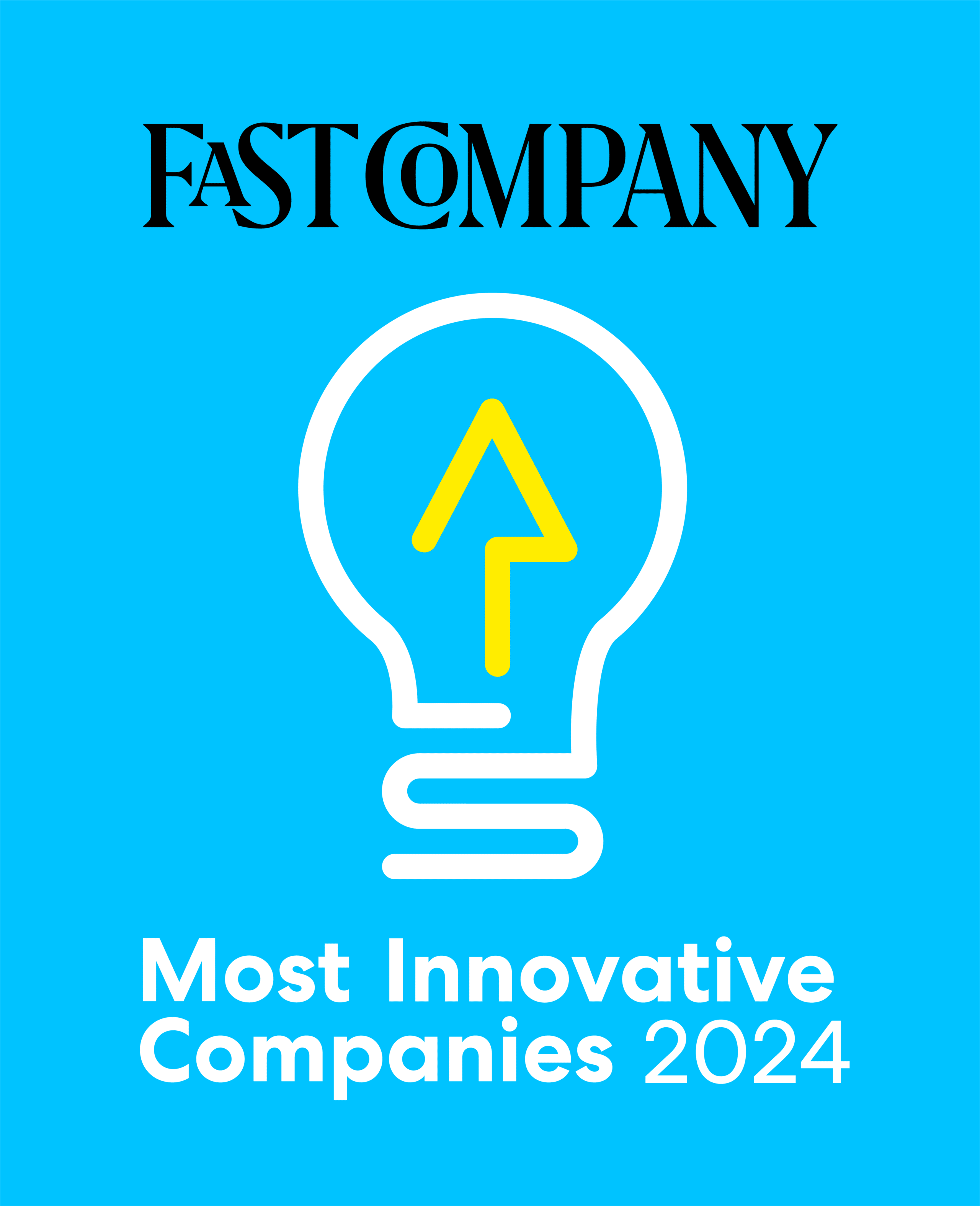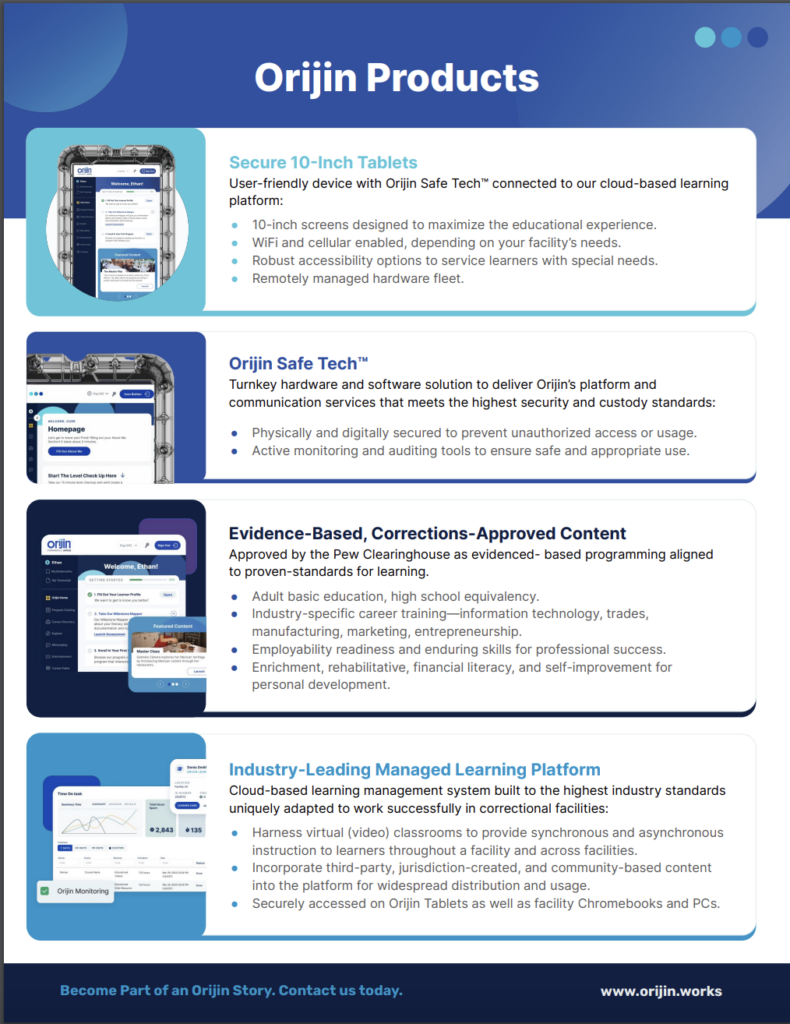New partnership tools-up justice-impacted learners to prepare for trades careers upon reentry
A learner is immersed in Interplay Learning’s Electrical course, gaining essential skills in electrical theory, circuit design, testing, and safety. Soon, he will take HVAC and plumbing courses to boost his resume with additional trade skills to increase his prospects for sustainable employment upon reentry. What makes this learner different from other students entering into […]
Larry Miller’s Remarkable Story of Resilience and Redemption
Larry Miller’s journey from the streets to the boardroom is one of resilience, redemption, and inspiration. As the Chairman of Nike’s Jordan Brand, and former team president of the Portland Trail Blazers, his story shines a light on the transformative power of education, second chances, and the importance of shattering stigmas associated with the justice-impacted. […]
Warren’s Journey from Orijin Learner to Justice-Impacted Leader
When Warren Allen was transferred to a juvenile detention center in Washington, D.C., as part of a resentencing agreement, he found the max block in disarray. In a block holding 160 young men, only two phones worked, and access to them was tightly controlled by competing factions. Only one of the two TVs worked, and […]
Orijin Empowers Justice-Impacted Woman on the Wheel of Life
It was the year 2020, as the country was in the throes of the pandemic, when Saulina Eady found herself alone in a Baltimore prison cell serving a four-year sentence. Being apart from her 4 children who were thousands of miles away in California, and not being exposed to enrichment, education, or people, triggered depression […]
Special Q&A Interview with Harris Ferrell, CEO, Orijin

According to the Prison Policy Initiative, formerly incarcerated people are nearly 5 times more likely to be unemployed, and those who do find jobs, earn only about half of what the average worker earns. We had the opportunity to meet with Harris Ferrell, who joined Orijin as its CEO in 2018, to learn about his […]
Education, Innovation and 2nd Chances with ETS
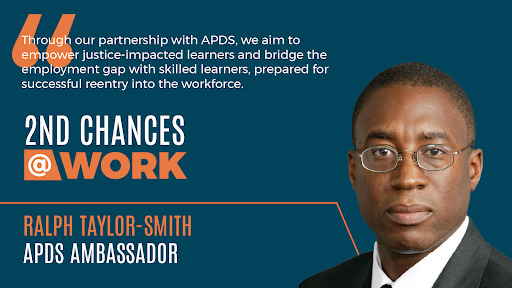
At ETS Strategic Capital, we seek innovative ideas and technologies of strategic value in six key areas: higher-ed, K-12, workforce corporate learning and assessment, innovative technologies for education, and white space. Now, as the Managing Director and CIO of ETS Strategic Capital and a board member of APDS, I have the privilege of bringing together […]
Education First! The Transformative Key to Second Chance Success
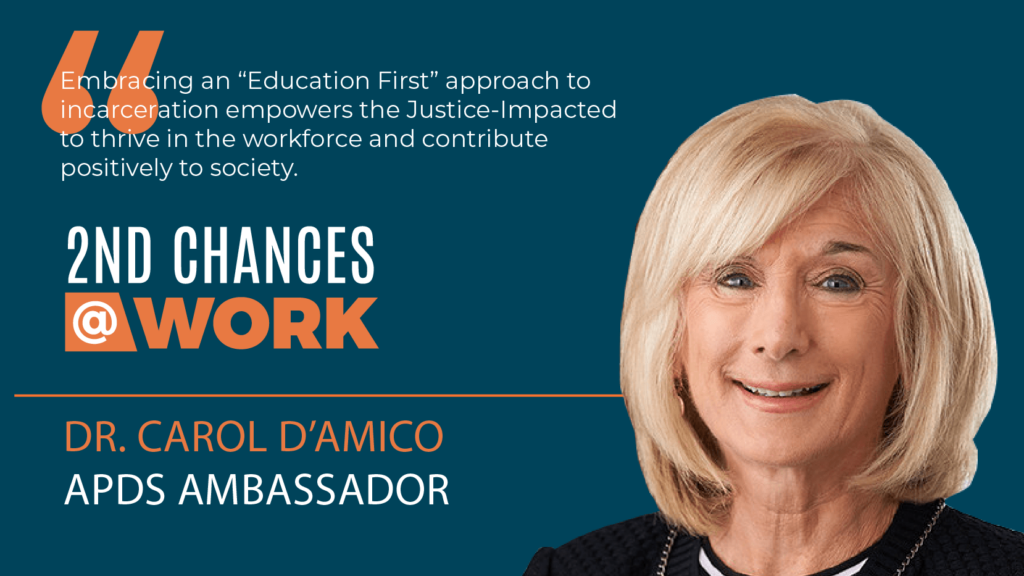
“Embracing an “Education First” approach to incarceration empowers the Justice-Impacted to thrive in the workforce and contribute positively to society.Education gives the 600,000 people released from correctional facilities each year a second chance.” In corrections reform, integrating education and workforce initiatives is pivotal to the successful reentry of previously incarcerated individuals, and it makes […]
Unlocking Potential: The Importance of Second Chance AND Fair Chance Hiring Practices

“Second Chance and Fair Chance hiring practices aren’t just about giving individuals a second shot at life; they’re about building stronger, more inclusive communities and fostering a fairer society.” In the quest for a just and inclusive society, Second Chance and Fair Chance hiring practices have emerged as powerful tools for change…change for justice impacted […]
Embracing Second Chances: The Transformative Intersection of Technology and Corrections Reform
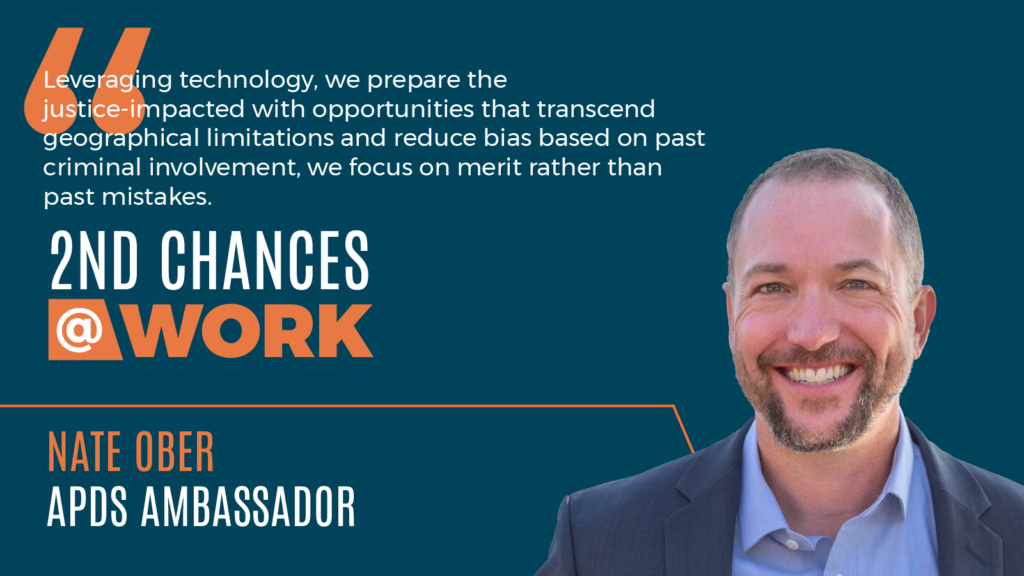
In the rapidly evolving world of corrections reform, technology integration offers unprecedented opportunities to drive positive change. Traditional employment barriers faced by individuals with a criminal record can be dismantled through the power of technology. Online platforms and remote work opportunities have revolutionized how we connect and collaborate. By leveraging technology, we can provide access […]
Changing from Correctional Facilities to Educational Facilities
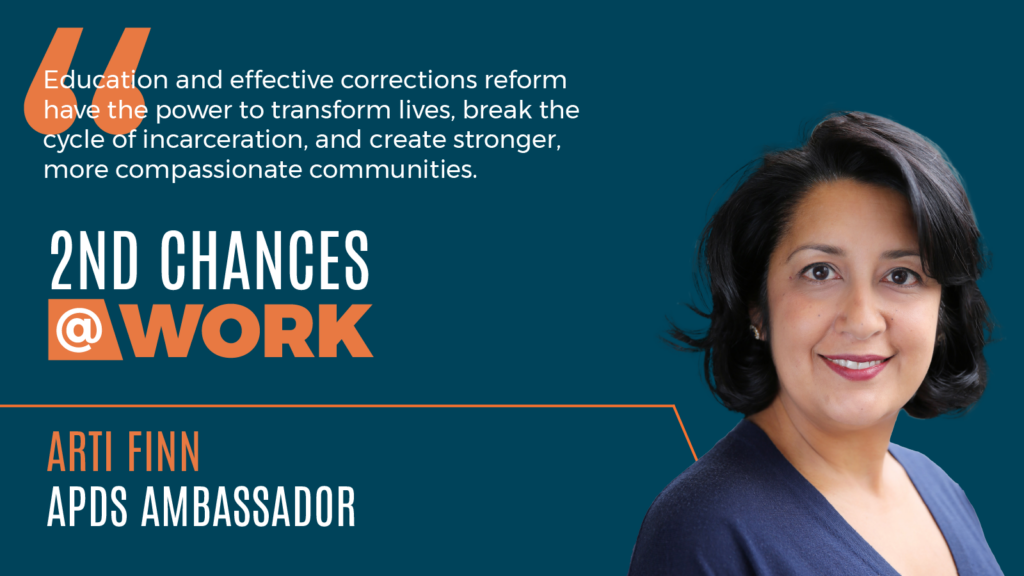
In the vast landscape of social reform, the power of education stands tall. As the co-founder of APDS and an ambassador for the 2nd Chances @ Work campaign, my mission is rooted in the belief that education, bolstered by career readiness, can unlock potential, transform trajectories, and rebuild lives for the estimated 1.77M individuals currently […]


